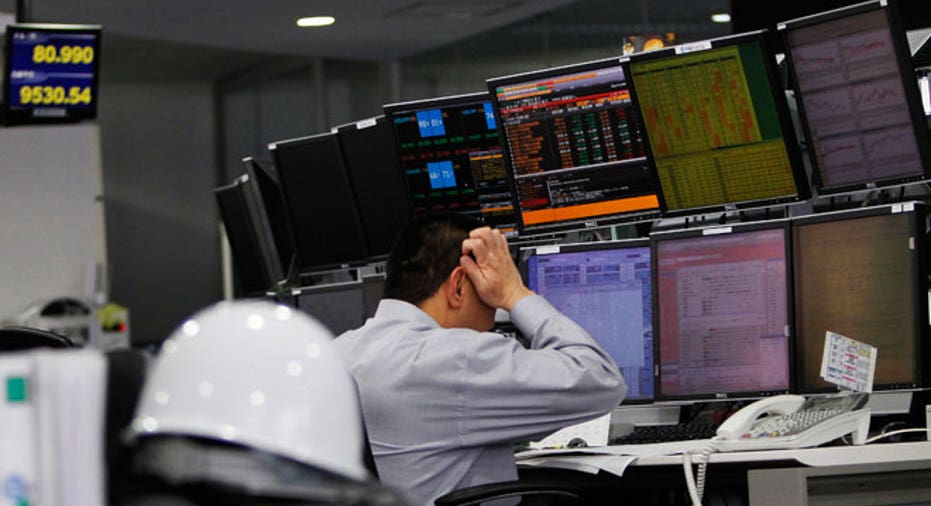Global Stocks Fall Sharply Amid China Fears

A selloff in global stocks gathered pace Monday, hot on the heels of the steepest one-week decline in years for many major markets. European stocks and U.S. stock futures fell sharply as a rout in Chinese shares gathered pace, wiping out gains for the year. Oil prices continued to drop, while Treasurys surged as investors sought the relative safety of government bonds. Fears that China's economy is slowing dramatically have sparked the heavy selling around the globe in recent days. Beijing's unexpected move to devalue its currency two weeks ago raised the alarm that the world's second-largest economy may be in worse shape than many investors had thought. Since then, weak economic data have fueled worries that a drop-off in Chinese growth could cause a global slowdown. The Shanghai Composite sank 8.5%, entering negative territory for 2015, having risen as much as 60% to its June peak. Japan's Nikkei benchmark tumbled 4.6%. Investors were further rattled Monday by the lack of fresh steps to stem the selloff over the weekend from Chinese authorities. The Wall Street Journal reported that the central bank is preparing to flood the banking system with liquidity to increase lending. Futures indicated opening declines of more than 2% for the Dow Jones Industrial Average and the S&P 500. The Dow entered a correction on Friday, falling 10% from its recent peak, following its worst week since 2011. Changes in futures aren't necessarily reflected in market moves after the opening bell. In Europe, the Stoxx Europe 600 fell 3.0% in early trade. The index is now up by just over 2% this year, as a massive rally sparked by the European Central Bank's stimulus program melts away. Germany's DAX index fell 2.3% to its lowest since January. The U.K.'s FTSE was down 2.4% at its weakest level since January 2013. The accelerating momentum of the selloff has left investors nervous. "Most obviously this is about China and the risk of a financial system crisis there. But sometimes the market organism takes over and develops a logic of its own," said Valentijn van Nieuwenhuijzen, head of multiasset strategy at NN Investment Partners, which has around EUR184 billion ($209.5 billion) in assets under management. The firm is more cautiously positioned, with more cash in its portfolios, than at any time in the last four years, Mr. van Nieuwenhuijzen said. Worries over China continued to hit commodities. Brent crude oil dropped 2.6% to $44.29 a barrel, below the $45 a barrel mark for the first time since March 2009. Government bonds were boosted as investors headed for assets perceived to be safe. The 10-year Treasury yield sank to 1.997%, dropping below 2% for the first time since April. Yields fall as prices rise. German and U.K. government bonds also gained. The dollar climbed sharply against a host of emerging-market currencies, but lost ground against the yen and the euro. The Japanese and European common currencies have recently tended to climb in times of market stress. The euro was up 0.9% at $1.1489, its highest since January. The dollar fell 1.3% against the yen to Yen120.497.